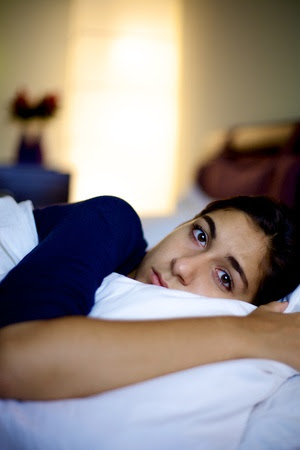Problem sleeping has many causes and yours may include more than one.
Dr. George Krucik, MD, wrote for Healthline Magazine, that sleep disturbances includes more than just the inability to fall asleep, but also that if you wake up, you can’t fall back to sleep.

For many, having trouble sleeping has more than one cause, and so may require more than one treatment.
There is no question that lack of sleep can cause a whole host of medical problems such as irritability, fatigue, and difficulty concentrating during the day.
Missing a few nights of good rest does not constitute a sleep disorder, as difficult as that is. But ongoing sleep disturbance can cause long-term health issues.
Some of the causes of sleep disorders, Dr. Krucik noted, include:
- Bedwetting
- Insomnia
- Restless leg syndrome (RLS)
- Sleep apnea
- Teeth grinding
- Allergies and colds
- Snoring
- Frequent urination
- Fibromyalgia
- Nightmares.
There are multiple options for the treatment options for sleeping disorders:
- Using a dental guard for teeth grinding
- Addressing bedwetting and potty training issues
- Melatonin supplements
- Decreasing tobacco and alcohol use
- Sleeping pills
- Examine medications for any underlying health issues
- Psychotherapy
- Weight loss
- Addressing other health conditions
- Allergy or cold medication
- Breathing device or surgery to address sleep apnea such as CPAP
- Decreasing evening water consumption
- Decreasing or limiting caffeine intake
- Having a regular sleeping schedule
- Decreasing stress and anxiety
The Mayo Clinic prescribes Cognitive Behavioral Therapy for insomnia or CBT-I.
The clinic staff wrote in a paper, “Diseases and Conditions of Insomnia,” as a problem described as trouble falling asleep, getting restful sleep, or staying asleep. Cognitive behavioral therapy for insomnia is an effective insomnia treatment for chronic sleep problems.
The therapy for insomnia is a structured program that helps to identify behaviors that worsen sleep problems. The program is designed to replace habits that interfere with sleep with habits that promote sound sleep. CBT-I helps to overcome the underlying causes of your sleep problems rather than using sleeping pills.
General guidelines for all sleep problems according to HelpGuide.org are:
- Make sure your bedroom is quiet, dark, and cool.
- Stick to a regular sleep schedule.
- Avoid naps.
- Avoid stimulating activity and stressful situations before bedtime.
- Don’t read from a backlit device (such as an iPad).
- Limit caffeine, alcohol, and nicotine.
- Prepare your brain for sleep by limiting your exposure to artificial light at night.
Other tips to try to improve your nighttime experience include not making your bed your enemy:
- Use the bedroom only for sleeping and sex. Don’t watch TV, work, use your smartphone computer.
- Get out of bed when you can’t sleep. If you can’t sleep, get up. Tossing and turning only make you more anxious. Leave the bedroom but don’t watch TV. The artificial light will only interfere with going back to sleep. Reading, have a cup of decaf tea, take a bath or listen to music.
- Turn your clocks away from view. If you need to set an alarm, do so, but don’t watch the clock. Watching the minutes tick by and knowing that you’re going to be exhausted is a recipe for insomnia.
Effects of Sleep Deprivation
In a paper by Harvard Medical School, sleeping less than five hours a night will increase the risk of death from all causes by about 15 percent. Lack of sleep is very dangerous for mental and physical health and will compromise your quality of life.
Your coordination, balance and decision-making abilities are all at risk during the day, even if you fight it. Stimulants like caffeine won’t help as the need for sleep can’t override that cup of coffee.
Drinking is especially dangerous when you’re sleep deprived as the effects of alcohol are magnified, as is your risk of being involved in an accident.
- The central nervous system requires rest in order to function properly, according to the Harvard study. Sleep is necessary to keep the nervous system functioning properly. The brain rests busy neurons and forms new pathways so you can think clearly in the morning.
- The immune system creates protective cytokines and infection-fighting antibodies and cells. These tools to fight foreign substances like viruses and bacteria. These tools help you sleep, and allows the immune system more energy to defend against illness.
- The respiratory problems weakens and you are more susceptible to the common cold and influenza. Sleep deprivation is likely to make it worse if your lungs are compromised.
Radio Frequency Ablation (RFA)
One popular new treatment option for sleep apnea that can be performed in-office and offers the patients the potential to eliminate the need for a CPAP machine or dental appliance is RFA. To learn more click here.
For more information about how we can help you with sleep problems, please click on the link or call the number below.
If you or someone you know is in need of a better night’s sleep, contact us for a no obligation consultation. We are the sleep specialists at Chevy Chase ENT located in the Virginia, Maryland, and Washington D.C. metro area dealing with sleep apnea and sleep-related problems. We can help diagnose your condition, recommend whether a sleep study would be beneficial, and offer you a variety of treatment options including CPAP, Radio Frequency Ablation (RFA) and more.
